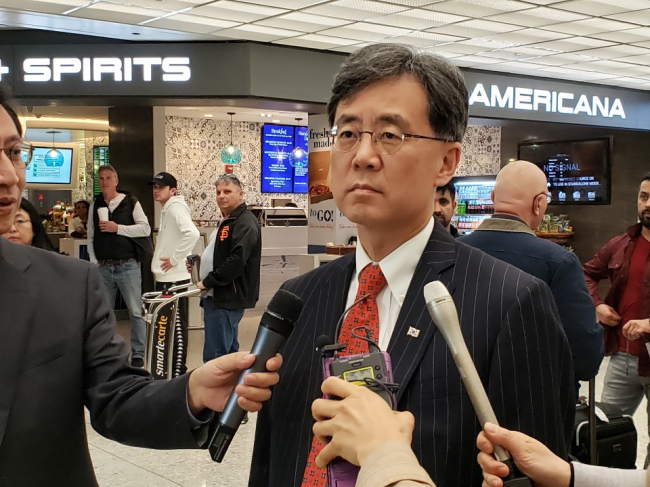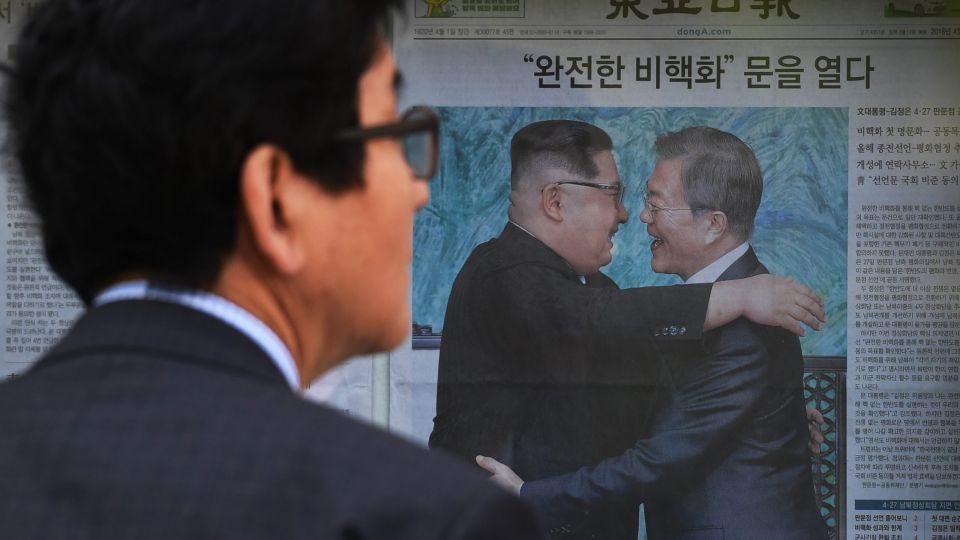April 1, 2019
Trilateral talks still needed on Korean Peninsula.
To advance the peace process on the Korean Peninsula, it is necessary for Seoul, Washington and Pyongyang to maintain bilateral and trilateral dialogues and to continue to pursue a top-down approach, a presidential aide said Saturday.
“Because of the top-down approach, we were able to get results to this point,” Kim Hyun-chong, the new No. 2 deputy chief of Cheong Wa Dae’s National Security Office, said upon his arrival at Dulles International Airport in Washington.
During his US trip, Kim will meet with the White House National Security Council and with members of Congress, including US deputy national security adviser Charles Kupperman, to set the agenda for the upcoming summit between President Moon Jae-in and US President Donald Trump on April 11 in Washington.
 |
| ) |
“It’s important to maintain dialogue in this top-down format,” he said.
Kim delivered those remarks in the midst of a stalemate in nuclear talks between the US and North Korea, since Trump and North Korean leader Kim Jong-un walked away from their summit without an agreement in Hanoi in February.
Some analysts have attributed the setback in Hanoi to top-down diplomacy, saying this approach hampered working-level negotiations and prevented the drafting of a detailed agreement with terms and conditions fine-tuned in advance.
Prior to the summit, in a letter to Trump, Kim reportedly expressed his willingness to negotiate only with the US president, without the presence of other US envoys.
Asked whether South Korea planned to send a special envoy to North Korea, Kim said consultations with the US would precede any such decision. “It’s about sequence, but I think it’s a good idea to talk with our ally US and meet them.”
A key focus of Kim’s meetings in the US will be to confirm that the two countries are on the same page on the denuclearization issue.
“What’s important is the definition of denuclearization,” he said. “So, we’ll discuss the ways to achieve that target and how we should do it.”
Seoul has suggested that Washington and Pyongyang draw up a road map for the entire process of denuclearization and divide the implementation process into phases so that the North can obtain reciprocal measures from the US for each step.
On Friday, Foreign Minister Kang Kyung-wha, who held talks with US Secretary of State Mike Pompeo in Washington, said the two allies were “completely aligned” on their end goal when it came to North Korea.


